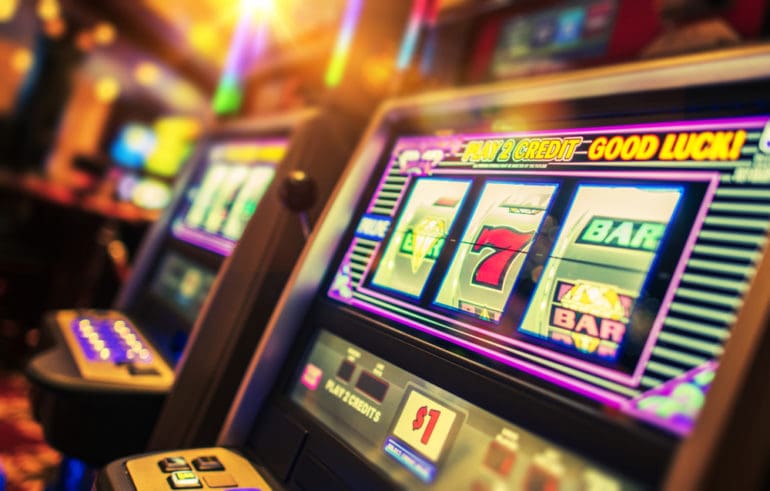Much like trends in music, film, and literature, games, and gaming habits offer extraordinary insight into the ever-changing nature of our socio-cultural landscape.
On an individual basis, they offer escape, entertainment, mental and physical stimulus, and new ways of pursuing our creativity. No longer a niche interest relegated to the windowless, neon arcade halls of Tron and The Last Starfighter, the world of gaming is as diverse and expressive as its players.
With hindsight, the immense rise of video games seems as inevitable as the rise of cinema — and, in many ways, more understandable. Far more than a passive audience, gamers control the story, characters, and timeline of the worlds they visit. They can celebrate achievements, win real-world prizes, or simply play for the fun of it.
The History of Gaming
The world of gaming is widely thought to have begun in 1958, with a basic computer game inspired by tennis. Still, the industry did not begin to gain any considerable traction until the early 70s when arcades first introduced us to Space Invaders and Pong, and, throughout the decade, the first consoles — the Magnavox Odyssey, Atari 2600 and Fairchild Channel F — made their way into homes.
Eventually, we were introduced to Super Mario — at the time, Jumpman — who spurred on competitors to begin designing their mascots. However, we wouldn’t meet Sonic the Hedgehog until 1991, or Crash Bandicoot until 1996.
By the mid-80s, Tetris and Pacman were fast-becoming favourites across the world, and the SEGA Master System was made available to the growing population of gamers.
Since the mid-70s, online games that allow you to step into a new world of roleplay and socialisation have grown massively; current-generation MMORPGs (or massive multiplayer online role-playing games) can house thousands of players across the world. Blizzard’s World of Warcraft, for example, boasts well over 10 million active players.
Social simulation, though always popular, has taken on greater significance over the past few months. Despite being released in 2001, searches for “Animal Crossing” have surged since the latest release in 2020, according to Google Trends:
The introduction of smartphones made gaming a portable pastime, though Snake had set the ball rolling on what we now dub “dumb phones,” and now dominate the global market.
The Wii ushered in a new level of active engagement that appealed to both lifelong gamers and first-timers who had never considered picking up a controller before then, and more recent developments within Virtual Reality are pushing the bounds further still.
Nostalgic Evolution
You need only stand in the aisle of any video game shop or scroll through the App Store on your phone to get a sense of the creativity and passion that continues to drive the video game industry today, and one of the most stand-out features of new and trending releases is the incredible diversity of what’s on offer.
For instance, the two most popular console games on the Guardian’s 2019 Top 20 list were Death Stranding, an open-world saga of magic realism and breathtakingly cinematic graphics, and Baba is You, a 2D puzzle game with visuals reminiscent of the 8-bit Ms. Pacman. While developers continue to push the bounds of graphics and plot, neither the audiences nor the creators show any signs of evolving away from visual simplicity, more basic mechanics, and cryptic puzzles.
From Google Trends, we can glean a significant surge in interest in “remastered games” over the last decade, which hints at a growing desire among gamers to revisit old favourites.
One of the most popular games to date is EA mobile’s Tetris, which, until its retirement in April 2020, saw some 1,000,000 downloads— and the mobile gaming industry continues to dominate the market. By the end of 2019, it held a 60% share of revenue, beating consoles, and PC, and this growth is expected to continue snowballing throughout the 2020s.
Mobile Gaming
While the numbers may seem surprising at first, this gravitation toward the realm of mobile gaming is not difficult to understand; whole swathes of our lives are now carried out on our mobile phones, from socialising, shopping, and dating to mediating, reading and watching TV. Mobile games — in particular, mobile casinos — offer comfortable, 24-hour access to entertainment for which we once would have needed to leave home.
In more concrete terms, the mobile gambling industry alone is expected to be worth more than $53,000 million before 2026. What’s more, according to SEMrush, the cost per click for the keyword ‘online casino’ reaches as high as $60.24, and Google Trends offers valuable insight into a recent surge in popularity.
Trends in keywords and search terms offer the most practical insight into our online behaviour, and in industries as competitive and lucrative as online gambling and mobile gaming, a high ranking on the results page is paramount. According to Google, of the results “online casino” yields, NetBet places at Number 1, a fact which demonstrates significant popularity within the market.
Below, Google Trends shows interest in the “online casino” over time.
Much like the arcade gamers of the 1970s, we likely remain somewhat naive to the future potential of gaming. Still, ongoing trends offer valuable insight into the direction it will, in all likelihood, continue to follow. Advances in technology, sociable online platforms, and the digitalisation of spaces such as casinos will all continue to pave the way for future technologies and habits.


